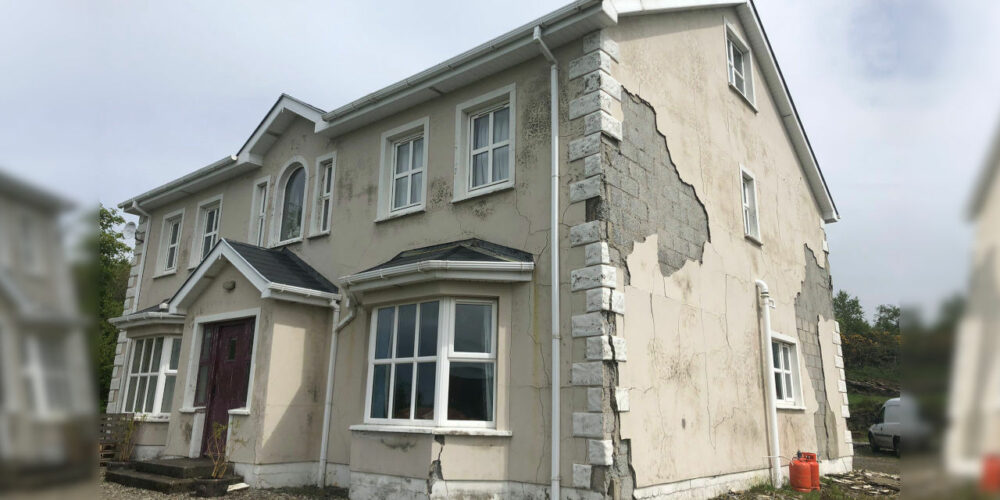A house is not just a building made of bricks and concrete: it’s a nest made of dreams and memories. When such a place crumbles in front of one’s eyes it is heartbreaking.
Approximately five thousand families have faced the heartbreak because of the mica issue, which caused cracks in many people’s dwelling. If more tests are conducted, that number will probably swell to ten thousand.
Those who were affected protested in Dublin on 15 June to seek justice, 100 per cent redress, and nothing less. More than five thousand men, women and children from Cos. Donegal, Mayo, Clare and elsewhere assembled in the capital. Even to avail of the redress scheme the people affected have to pay for the test (between €5,000 and €6,000) and inspection that prove the mica problem.
The scheme provides compensation of from €50,000 to €275,000, which is a cap for complete demolition and rebuilding. This does not include many other expenses incurred that the owners will have to pay from their pockets. The schemes are supposed to address people’s concerns, and they are not to be squeezed into the schemes. Only after a long struggle were they forced to come to Dublin for a protest.
Even after the protest the Taoiseach gave no assurance of redress. The Government, which never hesitates to spend billions to bail out banks when they collapse, is giving the cold shoulder to people affected by collapsing homes.
When pyrite (iron disulphide) became an issue in Dublin, a 100 per cent redress was given. Why was the same treatment not given to taxpayers in other counties?
Mica is a natural element that is hydrophilic, i.e. has a tendency to absorb water. Instead of a permitted 1 per cent of mica, up to 17 per cent was found in the affected houses. When the mica has absorbed moisture it weakens the blocks, and the cracks appear about five years from the time the house is built; and the nightmare begins.
The more we dig, the deeper the abyss. These mica blocks could have been used also in public buildings, such as hospitals. Now people are demanding—
- a thorough mandatory investigation of the scam where corruption could be involved;
- regulations on housing, with strict adherence to be made compulsory;
- 100 per cent redress and nothing less, which includes expenses for paying rent while a house is being rebuilt;
- health hazards caused by mica used in the blocks to be researched;
- the mental trauma it causes to the occupants also to be considered and dealt with through complete redress.
- The fact is that the Irish housing system is designed on a flawed model.
In Sins of the Father, Conor McCabe writes:
The housing needs were answered by diverting public funds to private builders (via grants and tax breaks), away from local authorities who represent the people.
The free market speculators and private builders cannot provide affordable housing. It is probably best not to leave such a fundamental social need in the hands of those who cannot provide it.
Instead of houses built as shelter for people they are treated as an asset by big corporations for parking profits and locking people in a debt crisis, which makes them obsessed with the debt they have to pay, spending their whole life thereby alienating them from social and political involvement.
These scams are inevitable when the Government neglects its responsibility to provide housing and passes the buck to private speculators, whose primary objective is to accumulate profit, rather than to provide quality housing for citizens. The private companies make a profit, the Government doesn’t agree to complete compensation, and the citizens are at the loss.
While we demand that a use value like the basic need of housing should not go through a system of exchange value, we have to stand by those who are fighting for their broken homes and tattered dreams.






